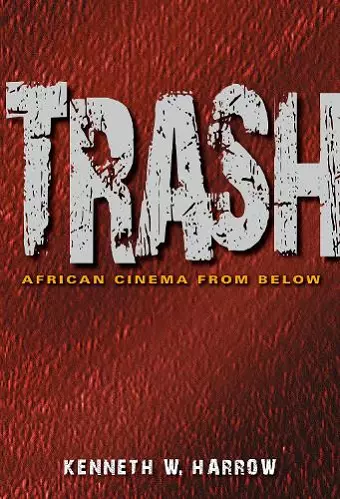Trash
African Cinema from Below
Format:Paperback
Publisher:Indiana University Press
Published:9th Apr '13
Currently unavailable, and unfortunately no date known when it will be back

African film against high culture
Uses trash as the unlikely metaphor to show how African films have depicted the globalized world
Highlighting what is melodramatic, flashy, low, and gritty in the characters, images, and plots of African cinema, Kenneth W. Harrow uses trash as the unlikely metaphor to show how these films have depicted the globalized world. Rather than focusing on topics such as national liberation and postcolonialism, he employs the disruptive notion of trash to propose a destabilizing aesthetics of African cinema. Harrow argues that the spread of commodity capitalism has bred a culture of materiality and waste that now pervades African film. He posits that a view from below permits a way to understand the tropes of trash present in African cinematic imagery.
Kenneth W. Harrow's Trash . . . is a timely intervention in the theorization of African cinema. It is an impassioned and committed interrogation of hybridity, syncretism and cross-fertilizaiton in postcolonial cinema and one that seeks to both celebrate and renegotiate the image of the marginalized and the discarded.5.2 2014
* Transnational Cinemas *Trash brings about a fresh perspective that figures African cinema as a type of mirror of condition, a kind of cinema verité that disrupts the aesthetics of necropolitics—whether from the north or the south—and the aesthetic order of high cinema.
* African Arts *Harrow's engaging book offers readers a glimpse into the trash heaps . . . squalor, and poverty that have often been depicted in African cinema since independence, but which have rarely been the object of critical study.April 2014
* African Studies Review *Trash inspires a rigorous questioning of how we think about 'Africa from below' in our scholarly research: it is a speculative, probing, provocative book filled with questions about power, exclusion, representation, and subjectivity, and about how African cinema engages social realities without necessarily serving up palatable dishes of realism or political critique.
* Journal of African History *This book is a work of erudition, understanding, engagement, and enthusiastic committment to African cinema studies and literature. . . . Highly recommended.
* ChoiISBN: 9780253007513
Dimensions: unknown
Weight: 590g
264 pages